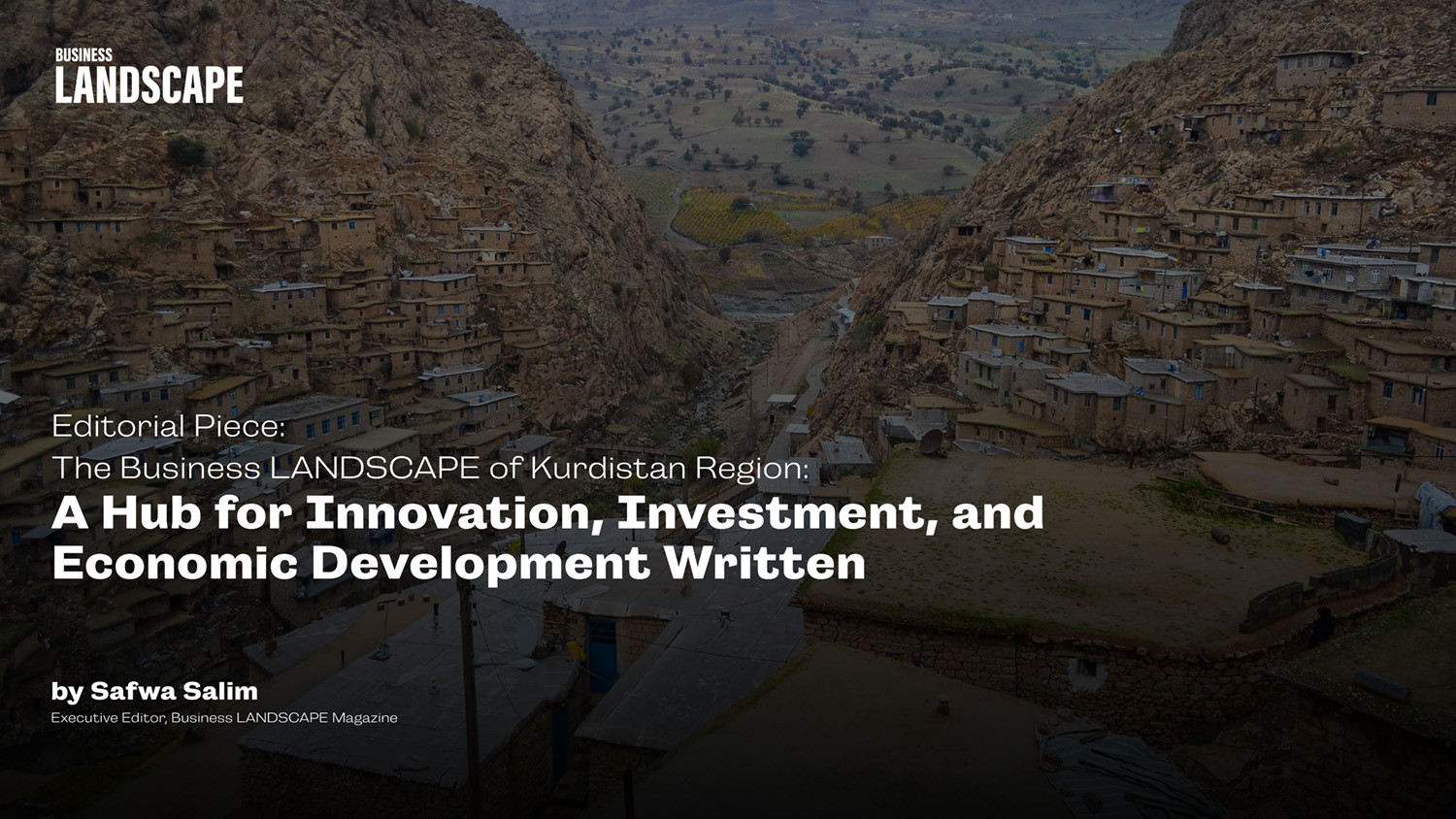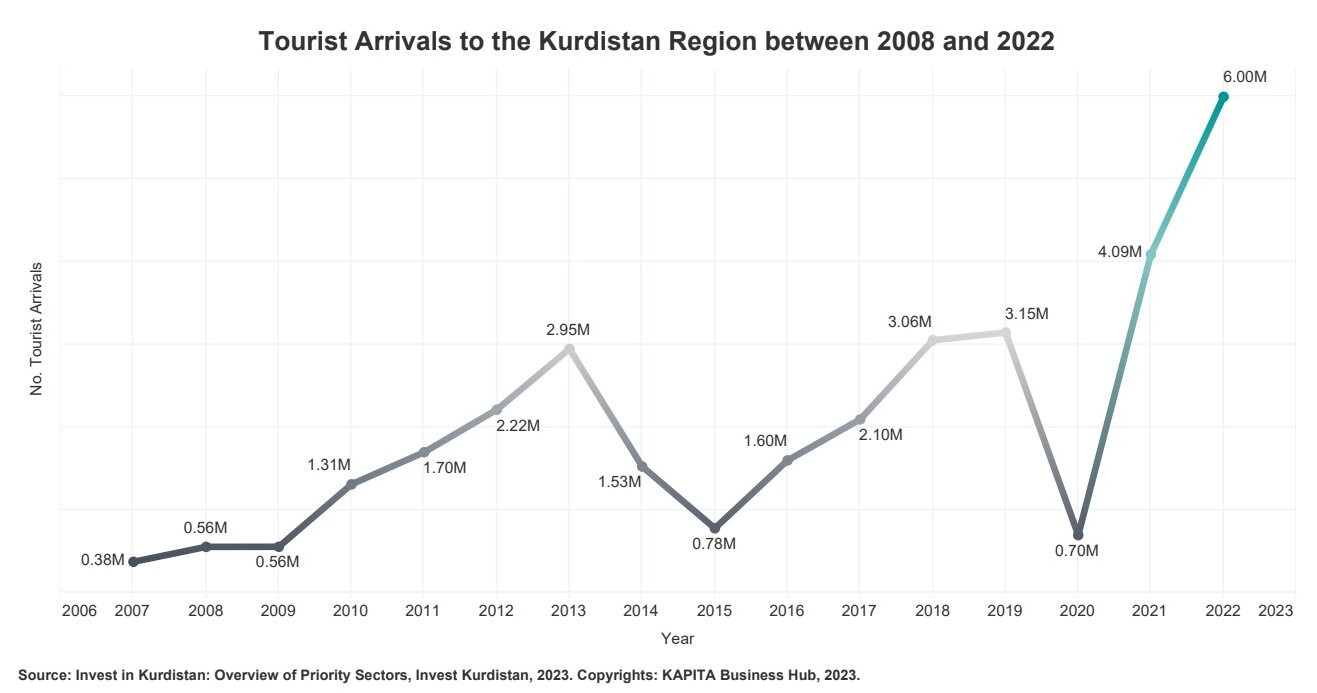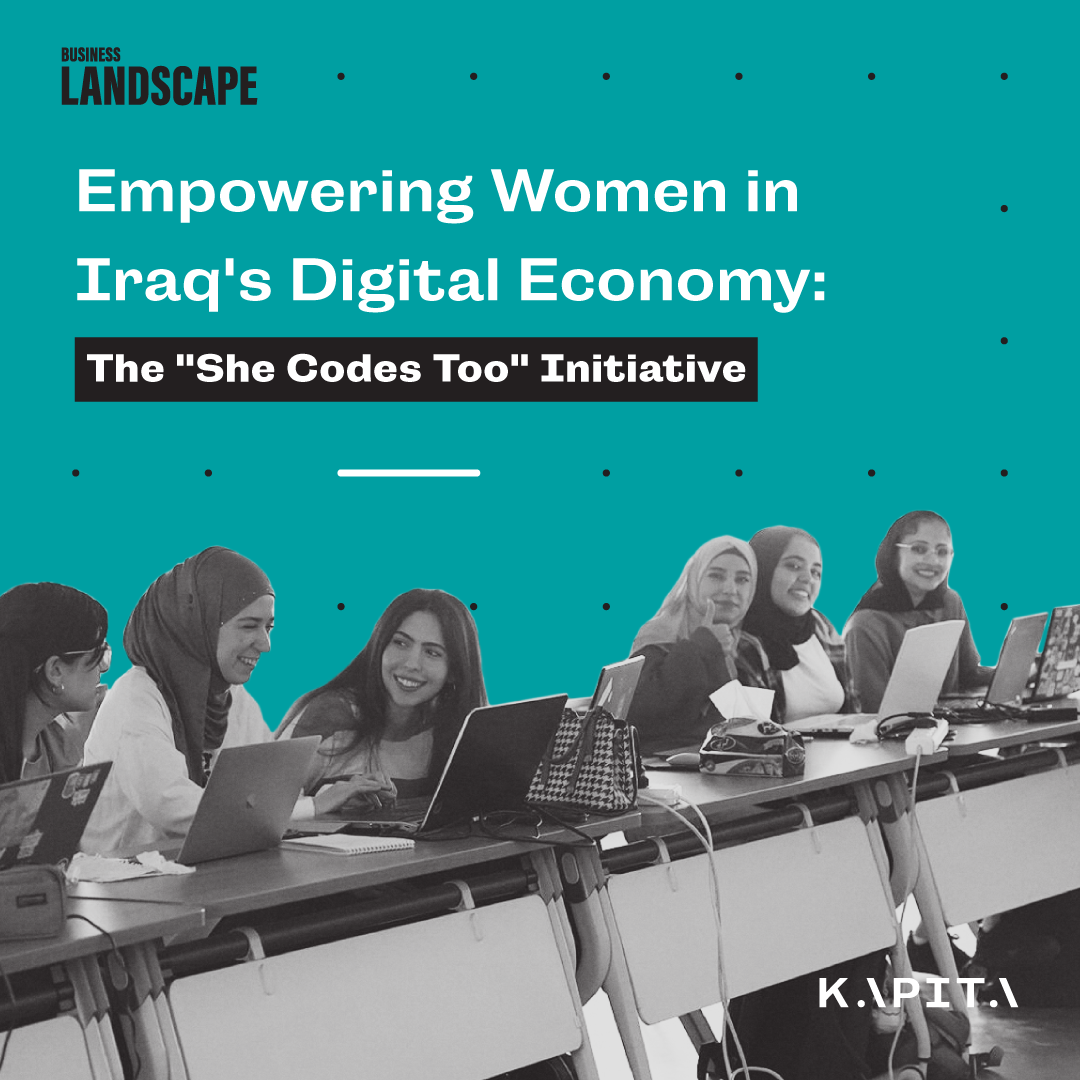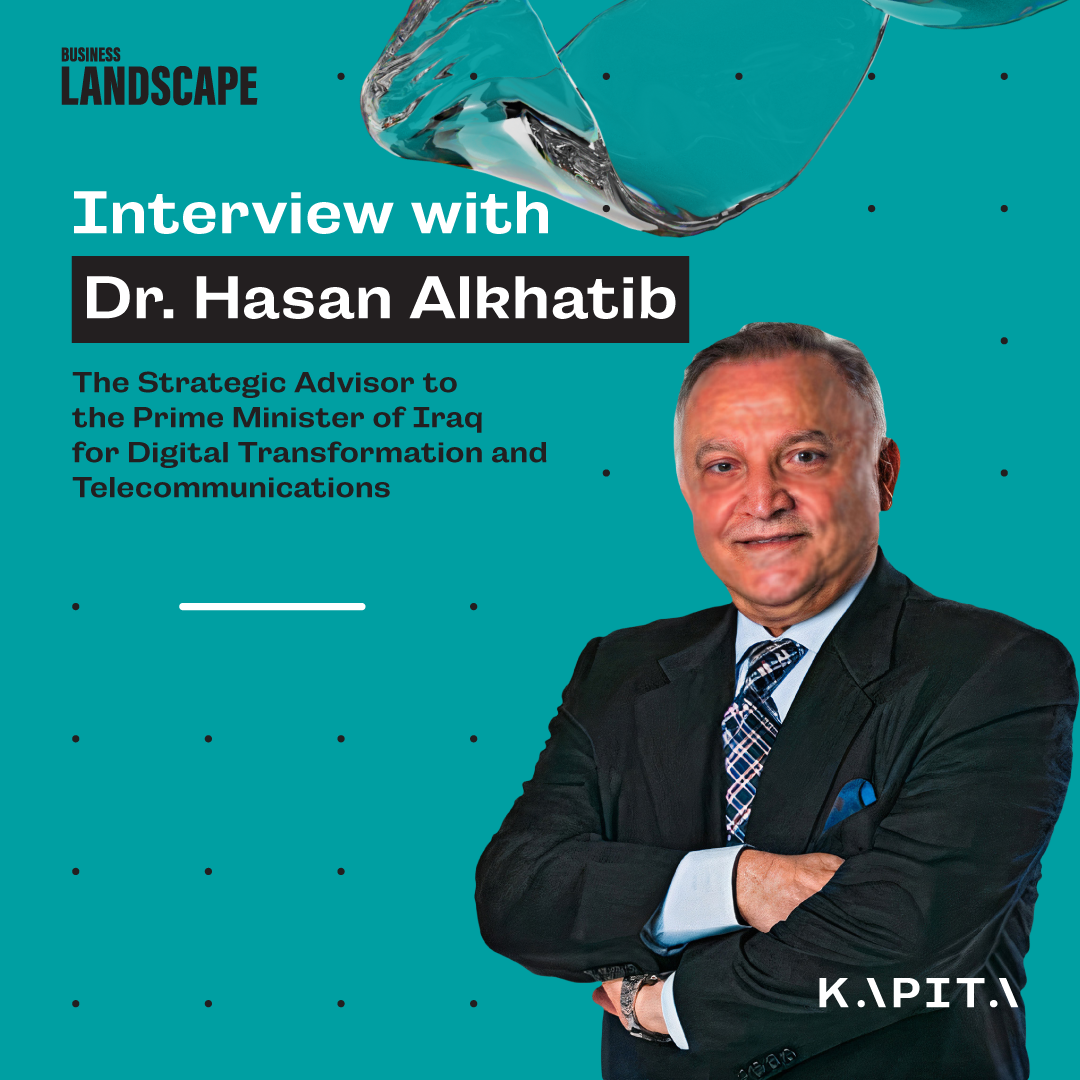The Business LANDSCAPE of Kurdistan Region: A Hub for Innovation, Investment, and Economic Development
Safwa Salim
Executive Editor, Business LANDSCAPE Magazine
Kurdistan Region has been home to an abundance of local resources, a youthful population, and fruitful opportunities. The region is also the birthplace of multiple conglomerates that successfully established their names not only locally and regionally but also internationally.
In this special edition of the Business LANDSCAPE Magazine, which has been created in collaboration with our esteemed partners, The Board of Investment-Invest Kurdistan, we bring you on this journey to explore the flourishing business landscape of Kurdistan Region.
The Kurdistan Regional Government (KRG) has focused on restoring the region's stability, security, and economic development. A critical pillar of this strategy has been attracting foreign direct investment (FDI) and creating a vibrant private sector. The establishment of the Board of Investment (BOI) in 2006 is a manifestation of this strategy. The BOI was tasked with streamlining licensing processes, providing incentives, assisting investors, and creating a favorable business climate. To date, the BOI has issued over 1,120 investment licenses with a total capital of more than $67 billion, including around $12 billion in FDI and joint ventures. (Read more on page 8, The Investment Scene in Kurdistan Region: How is Kurdistan Region
Becoming More Investable? by Invest Kurdistan).
The region's economy has grown significantly over the past two decades; the GDP per capita was about $7,038 in 2022. It has received major investment from both local and foreign investors since 2006, with total invested capital exceeding $66 billion. The government is actively seeking to attract more investment projects to the region and has a dedicated team to support investors and facilitate the investment process. The investment opportunities lie in many sectors, including agriculture, manufacturing, tourism, the ICT sector, infrastructure, renewable energy, transportation, and others. (Read more on page 46, Invest In Kurdistan: Overview of Priority Sectors by Invest Kurdistan’s Team).
Moreover, the ICT sector in Kurdistan is rapidly evolving, witnessing a growth rate of 13%, with over 500 registered companies across software development, telecommunications, e-commerce, and digital services. The region, with 4 million internet users, is becoming a hub for technological entrepreneurship. (Read more on page 38, The Information and Communications Technology in Kurdistan Region: An Overview of Digital Skills, Sectors, and Investment Opportunities by KAPITA’s Research Team).
This digital transformation has been enabled by the Department of Technology and Information (DIT). The DIT’s main responsibilities are focused on empowering citizens, government, and businesses through the use of innovative information technology solutions. Many applications have been launched to transform various sectors, such as the Population Information System, the Kurdistan Financial Management System, the Business Registration System, and many others. (Read more on page 14, Navigating the Digital Frontier: The Role of the Department of Information Technology in the Transformation of Kurdistan by Hiwa Afandi).
These developments in the region ignited the urgent need to mitigate the challenges in preparing Iraqi youth for the job market and bridging the gap between the education system and labor market requirements. A long-term vision, improved teaching methods, and a shift in the examination system would align educational systems with workforce needs. (Read more on page 20, Shaping Tomorrow: Preparing Iraqi Youth for the Job Market by AbdulSalam Medeni).
Recognizing this need to equip the youth with skills to enter the workforce, the university education in KRI is experiencing a notable transformation characterized by various key factors. These factors include curriculum updates, focus on practical skills, collaborations with international universities, and the establishment of career centers. (Read more on page 30, Transforming University Education in Kurdistan, Iraq: Overcoming Challenges and Embracing Positive Change by Mohammed Bajalan).
In addition, the unique position of universities provides an invaluable opportunity to make a distinctive contribution to the entrepreneurial ecosystem. An entrepreneurial university can be defined as an academic institution that, rather than solely focusing on traditional teaching and research activities, also embraces entrepreneurship in its strategies, operations, and organizational structure. Universities such as the American University of Iraq, Sulaimani (AUIS), are taking significant strides towards becoming an entrepreneurial university to contribute to building the ecosystem in the region. (Read more on page 26, Pioneering University Roles: AUIS Leads the Charge for University Engagement in Iraq's Entrepreneurial Evolution by Dr. Hemin Latif).
Furthermore, many corporates who have established themselves as industry leaders started their journeys in Kurdistan Region. Cihan Group, which started as a textile business, then established its current prominence in trading, foodstuff, automotive, car rental, education, banking, insurance, media, construction, and energy. The Group reflects a commitment to innovation, community development, and economic growth. (Read more on page 34, Cihan Group: Weaving a Legacy of Innovation across a Multitude of Sectors by Cihan Group).
Our series of interviews includes multiple leading figures in their domains. Dr. Muhammed Shukri, Chairman of the Board of Investment in KRG, discusses the investment scene in the Kurdistan Region. He reflects on the commitment of the regional government towards attracting investment opportunities into the region, highlights the role of the BOI in fulfilling that goal across multiple levels, and emphasizes the promising opportunities available to investors in different sectors. (Read more on page 58).
Sheikh Fakhir Sheikh Tayeb, the CEO of Qaiwan Group, shares with us the Group’s success story, growth into a conglomerate, and their focus on innovation and development across all sectors. He also discusses the vitality of the energy sector and the importance of renewable projects like the Qaiwan Solar Plant and explores the challenges and opportunities imposed by climate change. (Read more on page 64).
Dr. Akaam Kamal, the Executive Director of Halabja Group, discusses the company's diversified business sectors, commitment to community support, dedication to education and workforce development, partnerships in the food industry, and contributions to the local agricultural sector and food industry. (Read more on page 70).
Our journey through the dynamic business landscape of Kurdistan Region echoes the commitment to growth from all the key stakeholders. It is evident in the government's initiatives, entrepreneurial endeavors, the pioneering spirit of educational institutes, and the innovation of conglomerates. A story of growth, progress, and determination emerges to pave the way for a triumphant future.







